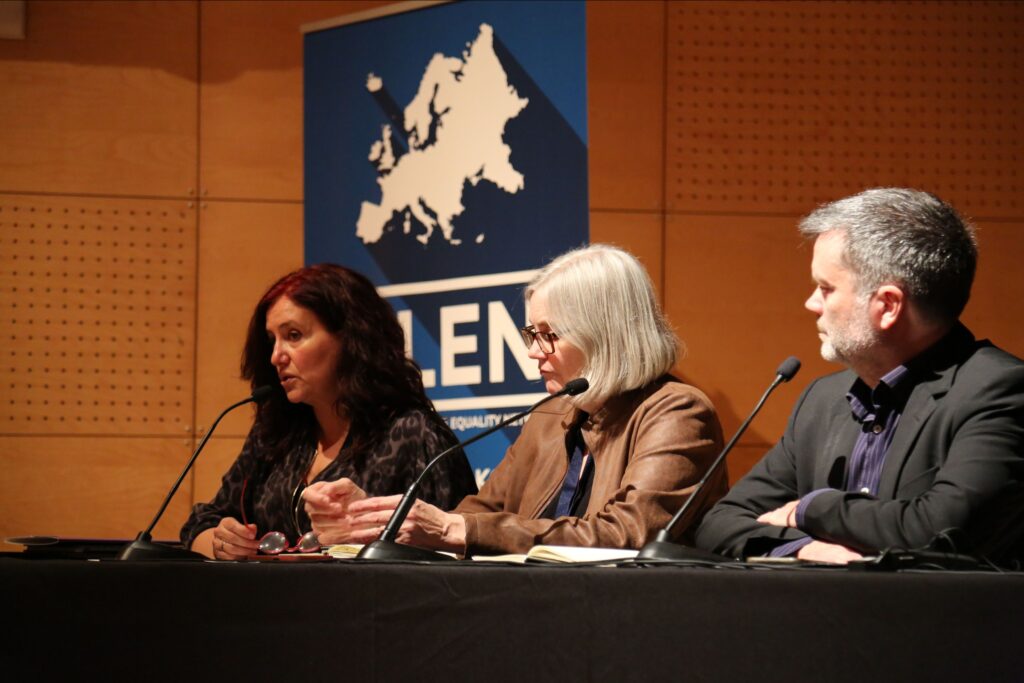
The ELEN has stated that the Basque language and the Basque-speaking community are in a «linguistic emergency»
RESOLUTION ON THE LINGUISTIC EMERGENCY
In recent years, there have been evident signs that the revival process for the normalization and revitalization of the Basque language has slowed. Although the number of speakers is increasing in absolute terms, various factors highlight the fragility of this progress. To name a few from last year’s VII Sociolinguistic Survey: the relative number of speakers in the Northern Basque Country continues to decline; in Navarre, six out of every ten students have no contact with Basque throughout their educational process; in the most Basque-speaking areas of the Basque Autonomous Community, Basque language use is retreating, and throughout the Basque Country, it is increasingly common for speakers to feel more comfortable in non-Basque languages. In numerical terms, only 17.5% of speakers use Basque more than other languages in their daily lives. This means that social use, the primary indicator of a language’s health, is weak, and broader language practices reveal a trend toward further weakening.
This fragility is closely tied to the status of the Basque language and its speaker community. As is well known, Basque lacks official status over much of its territory —throughout the Northern Basque Country and most of Navarre— a significant obstacle in the recovery process for a minoritized language. In the territories where Basque is official, specifically in Alaba, Bizkaia, Gipuzkoa, and the “Basque-speaking area” designated in Navarre, a series of court rulings are dismantling language policies that favor Basque. These rulings represent a fierce judicial assault on normalization and revitalization, arguing that measures supporting Basque are discriminatory, thus challenging Article 7.2 of the European Charter for Regional or Minority Languages. Additionally, this assault has a political and media dimension, where measures to protect Basque and its speaker community from minoritization are being portrayed as acts of discrimination. This has disrupted broad social consensus and worked against social cohesion and justice.
The current wave of globalization has further increased this vulnerability. The trends in mobility, socio-demographic changes, and the digitalization and commercialization of life have introduced new challenges to the normalization and revitalization process. It is clear that a consequence of the current variant of globalization is the strengthening of structural power relations in favor of the more powerful across political, economic, and social dimensions, where the dynamics of power between languages or speaker communities are no exception. In short, globalization and digitalization are making hegemonic languages more hegemonic and minoritized languages more vulnerable.
Considering all of this —and noting that the Catalan and Galician communities, which face similar situations, have already taken steps in this direction—we declare that Basque and its speaker community are in a state of linguistic emergency. Without appropriate measures in the short term to reverse the current sociolinguistic trends and structural issues, a regression is imminent. If no leap is made in language policy, the language will soon be on a path toward losing social viability rather than gaining it.
Declaring this state of linguistic emergency is not a call for lament but a way to initiate the first step toward reorienting the normalization and revitalization of Basque. We understand the primary task to reverse this situation is to place this issue at the core of the political and social agenda. Therefore, we call upon institutions, authorities, and political and social actors to prioritize the normalization and revitalization of Basque as a critical initiative. To the citizens, we call for civic engagement on Basque normalization, similar to how we are collectively addressing other social and political emergencies. This process needs all of us.
Moreover, given that the Basque linguistic emergency shares global challenges that threaten other minoritized languages worldwide beyond its own specific characteristics, we urge European institutions, authorities, and political, social, and citizen actors to take measures within their respective capacities and responsibilities to prevent cultural homogenization and to promote the normalization and revitalization of minoritized languages and their communities. Indeed, in this context, where life itself is increasingly endangered, supporting minoritized languages and cultural communities is a way to stand for the world.
Bilbao, 9th November 2024
